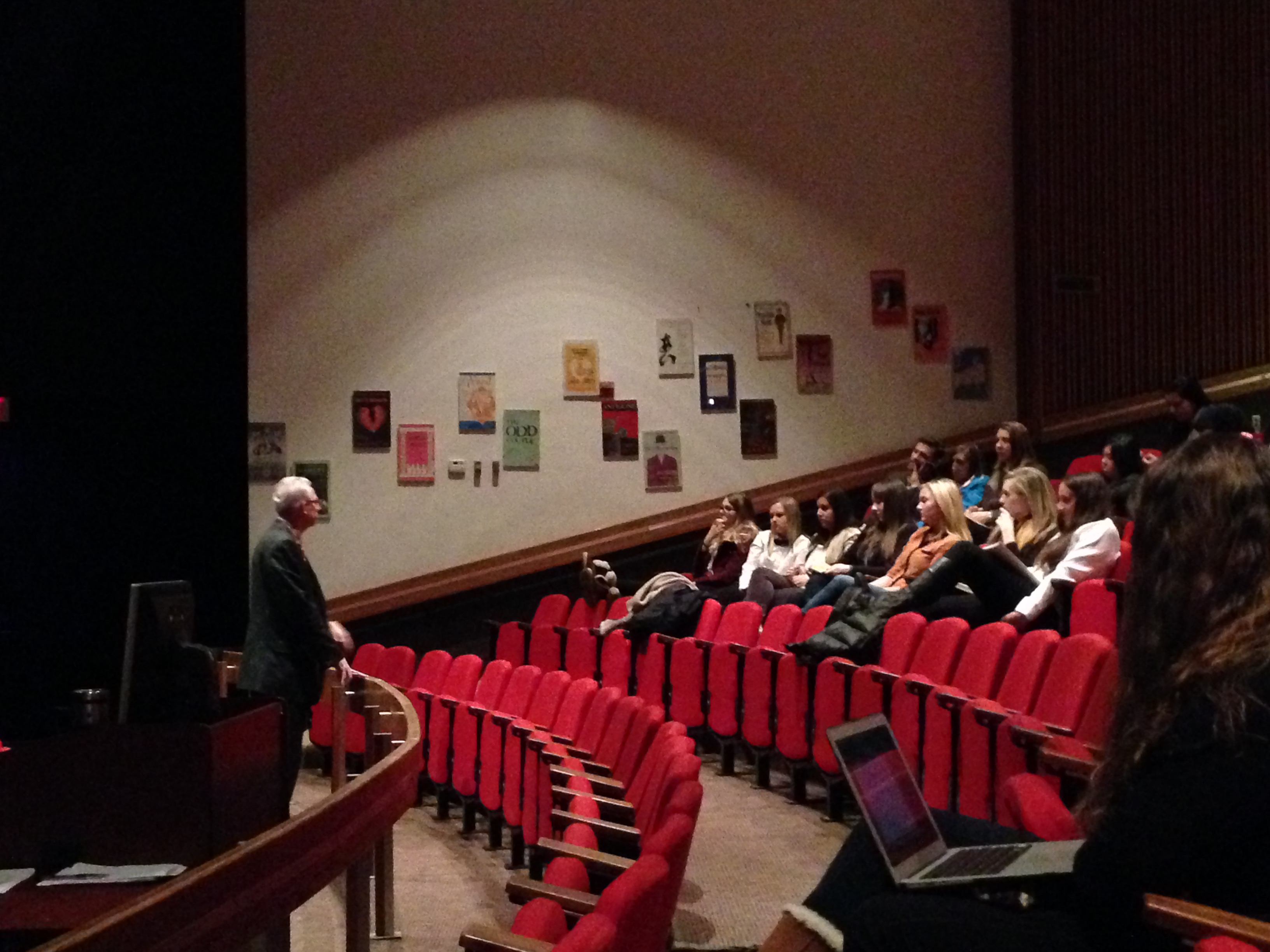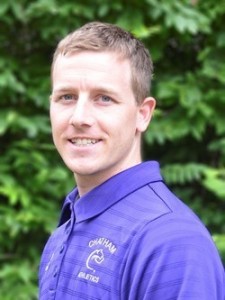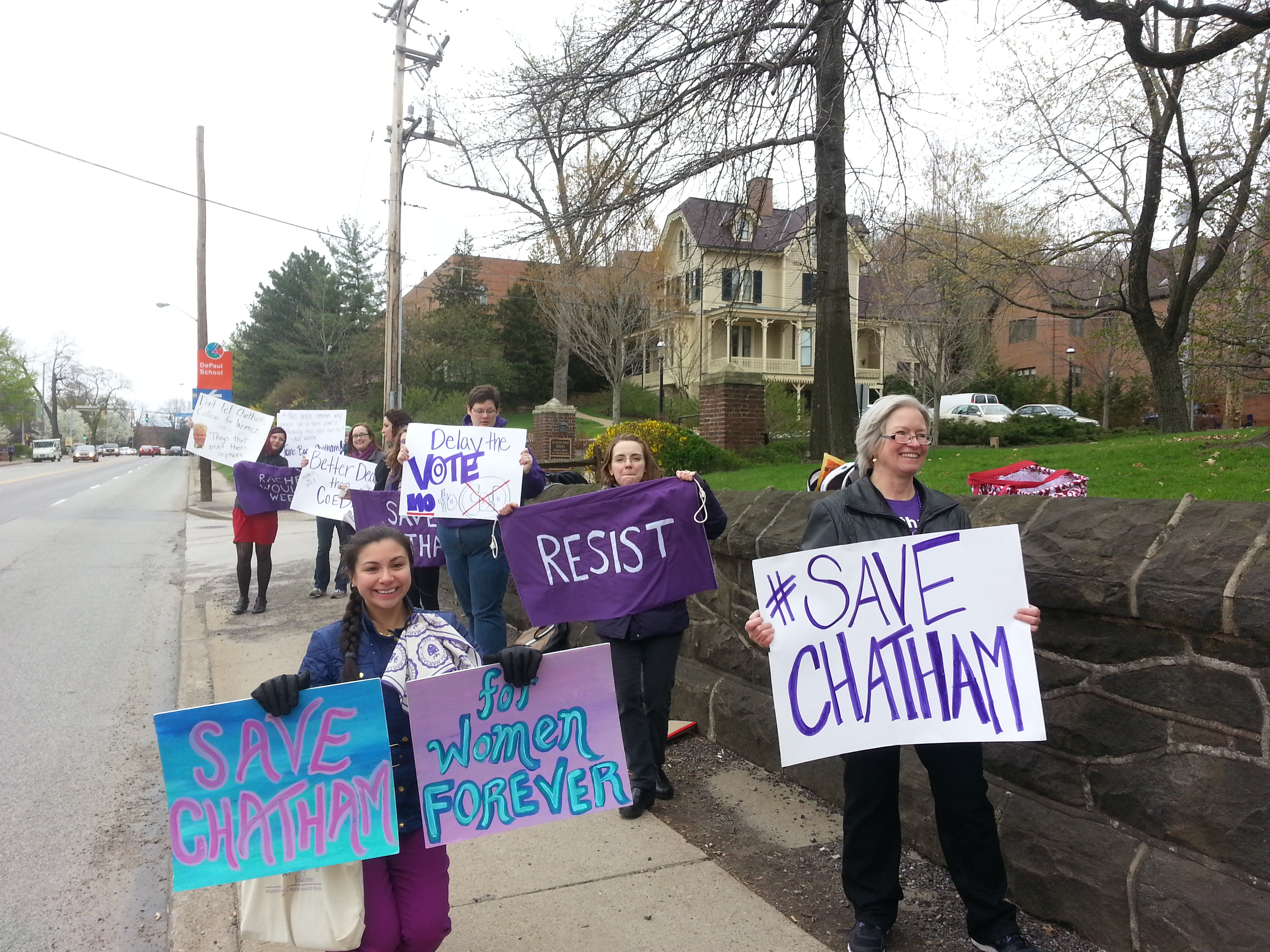More changes are in store for Chatham University’s 2015-2016 academic year, with administration’s decision to “refresh” the color pallet to coincide with the University’s new identity as a coeducational institution, explained Bill Campbell, Vice President of Marketing and Communications, and Krista Terpack, Senior Graphic Designer, in a presentation to the Chatham Student Government at their meeting on Thursday, April 2.
The transition, “creates the opportunity to create a fresh look,” Campbell said, explaining that the graphic design company Ologie, which specializes in higher education, was brought in from Columbus, Ohio for the University’s rebranding.
The main question throughout the process, he said, was, “When you take away the Chatham College for Women, what do you do with purple?”
The answer that they came up with was to make purple the official color of the University.
“We modernized it a bit,” Campbell said, while passing around a print out of the new colors. He further explained that the color gray would be added as an accent a color, in addition to a brighter, more complementary shade of green.
He also added that the class colors would remain, but that the different colors for the various schools within Chatham University would be eliminated, saying, “We want to be one University.”
Terpack went on to add that the University logo would also be changing, but only slightly. The new logo will keep the same font, but it will be in purple, and they will tighten the letter spacing and implement a “heavier” typeface for the word “University.”
In response to a question from Skylar Wilcha, Class of 2015 President, about changing the signage across campus, Campbell said, “Over the summer we’ll be looking at refreshing things,” explaining that the process would be carried out in phases.
Additionally Alex Waasdorp, Class of 2018 President, inquired about uniforms for University athletics, to which Terpack replied, “Purple has stayed the primary color for athletics throughout,” adding that the athletic colors moving forward will be purple and gray.
The meeting then moved on to the topic of the relocation of several resources on campus, discussed extensively at a meeting with the space planners, President Esther Barazzone, and the President’s council the previous Thursday.
Sam Elbaz, CSG Vice President of Finance, explained that in response to the news, the CSG executive board drafted a letter to the President’s council and to President Barazzone outlining their concerns about the changes.
“This is a direct follow-up,” Wilcha added, explaining that everything in the letter was brought up at the meeting, but that they wanted their points to be put in writing.
Elbaz further explained that the letter had to be issued quickly given the short timeline for the changes, pointing out that work on the Carriage House is expected to start by the end of May.
The letter, which Elbaz read to the CSG, requested that they consider leaving the PCW Room as it is, updating the student lounges that already exist, adding more food options—including a convenience store in the new bookstore—expanding the athletics areas and adding more weight machines, creating a 24-hour library space with a restroom, and creating a student space implementation committee to oversee future changes.
As it stands, the decisions that were made, “did not leave much room for student input and suggested modification,” Elbaz said, pointing out that, “these spaces are, after all, for students.”
The discussion then shifted to the topic of the CSG code of conduct, which outlines the attendance policy, dress-code, and required attendance for campus traditions for CSG members, as well as asserting that the CSG in an “advocacy focused organization.”
After much argument over small details of the document, Phoebe Armstrong, Class of 2016 President, reminded everyone that the code of conduct is a “flexible document” and that it exists solely as an “outline on how you should be acting.”
Other points of note from the meeting included the announcement of a summer internship discount, which will lower the fees for student’s participating in summer internships from $700-$800 per credit, to $150 per credit for the first three credits, and $300 per credit after that, plus an additional $24 processing fee per credit. It was recommended that students with summer internships follow up with Crystal Vietmeier, Assistant Director of Career Development, about the discount.
The meeting also included an update from Elbaz on the Undergraduate Budget Committee (UBC), which granted two requests at its last meeting. Elbaz explained that Chabad on Chatham requested $2,100 and was given $1,300, and the Class of 2015 requested and was granted $980, leaving $7,254.01 in the budget. She further explained that the UBC would discuss next year’s budget at their next meeting.
The CSG meets every Thursday and all meetings are open to the student body.






